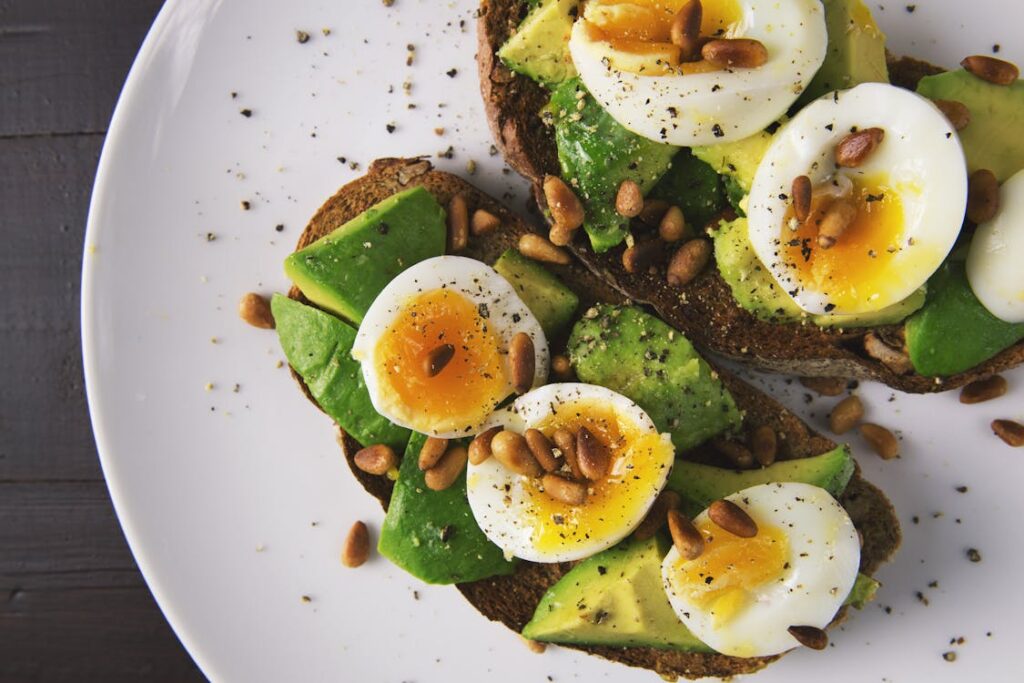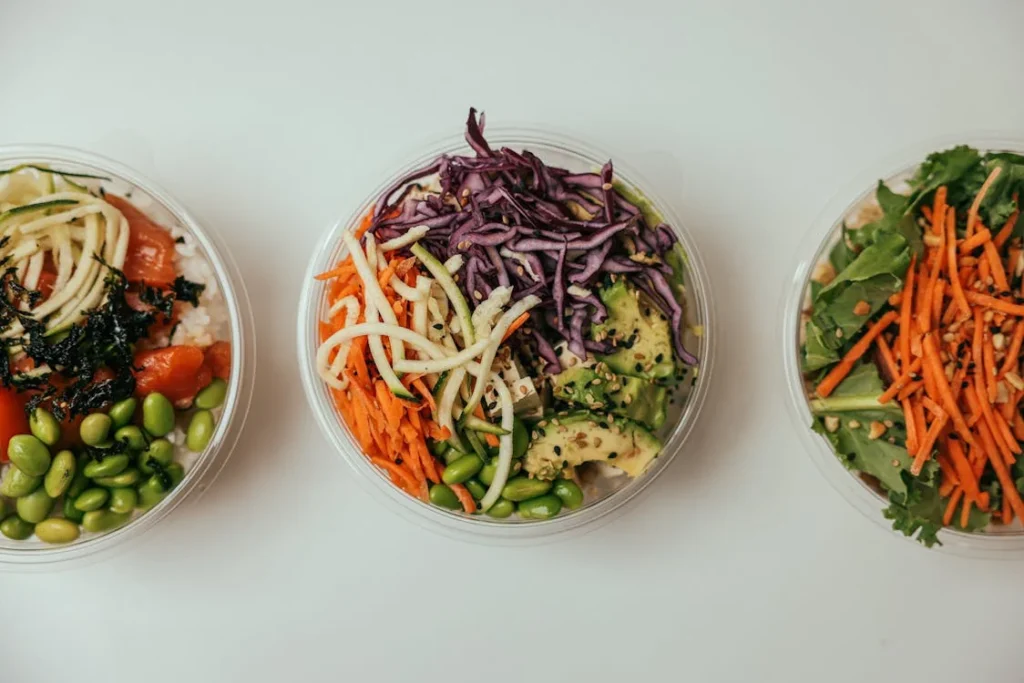Recovering from amputation surgery is a journey that requires more than just medical care and rehabilitation. Nutrition plays a crucial role in healing, helping the body repair tissues, reduce inflammation, and regain strength. Eating the right foods can speed up recovery, improve energy levels, and support overall well-being.
After surgery, the body works harder to heal wounds, fight infections, and adapt to new physical demands. Proper nutrition provides the essential nutrients needed for these processes. Protein helps rebuild tissues, vitamins and minerals strengthen the immune system, and healthy fats support cell repair. Staying hydrated and maintaining a balanced diet can also prevent complications and promote better mobility.
A well-planned diet can make a significant difference in how quickly and smoothly recovery progresses. Understanding which foods to eat and which to avoid can help individuals regain their strength, maintain a healthy weight, and prepare for prosthetic use.

Essential Nutrients for Wound Healing and Strength
The Power of Protein in Tissue Repair
After amputation surgery, the body requires more protein than usual to rebuild tissues and heal wounds. Surgery places stress on the body, leading to a breakdown of muscle proteins.
Without enough dietary protein, the healing process can slow down, increasing the risk of complications such as infections and delayed recovery.
Proteins are made up of amino acids, which serve as building blocks for new tissues. Some amino acids, like arginine and glutamine, play a direct role in wound healing and immune function.
Foods such as lean meats, poultry, fish, eggs, dairy, beans, lentils, tofu, and nuts provide high-quality protein that supports muscle maintenance and tissue repair.
For individuals who struggle to consume enough protein through food alone, protein shakes or supplements can be an option under medical supervision.
Balancing protein intake throughout the day ensures that the body gets a steady supply of nutrients for recovery. Instead of consuming large amounts of protein in one meal, spreading it across breakfast, lunch, and dinner can maximize its benefits.
This approach helps prevent muscle loss while supporting the formation of new tissue around the surgical site.
The Role of Vitamins and Minerals in Healing
In addition to protein, vitamins and minerals play a vital role in helping the body recover. Vitamin C is one of the most important nutrients for healing because it helps the body produce collagen, a protein that strengthens skin, blood vessels, and connective tissues.
This is especially important for wound closure and scar formation. Citrus fruits, bell peppers, strawberries, and dark leafy greens are excellent sources of vitamin C that promote faster healing.
Zinc is another essential mineral that supports immune function and wound repair. A deficiency in zinc can slow the healing process and increase the risk of infections.
Foods such as nuts, seeds, shellfish, and whole grains provide a natural source of zinc that enhances the body’s ability to repair damaged tissues.
Vitamin D and calcium play a crucial role in bone health and strength, particularly for individuals who will be using a prosthetic limb. Strong bones provide better stability and reduce the risk of fractures.
While sunlight is a natural source of vitamin D, foods like fatty fish, fortified dairy products, and egg yolks also contribute to maintaining optimal levels.
Calcium-rich foods such as milk, cheese, yogurt, and green leafy vegetables help keep bones strong and support overall mobility.
Iron is another key nutrient, as blood loss during surgery can lower iron levels. Low iron can lead to fatigue and weakness, making recovery more difficult.
Consuming iron-rich foods like red meat, beans, spinach, and fortified cereals helps replenish iron stores and boost energy levels. Pairing these foods with vitamin C sources can enhance iron absorption, ensuring that the body gets the maximum benefit.
Healthy Fats for Reducing Inflammation
Inflammation is a natural part of the healing process, but excessive inflammation can cause pain, swelling, and delayed recovery. Healthy fats help regulate inflammation and support cell repair.
Omega-3 fatty acids, found in fatty fish like salmon, flaxseeds, and walnuts, have been shown to reduce inflammation and promote faster healing. Including these foods in the diet can help manage post-surgery pain and improve overall well-being.
Avoiding unhealthy fats, such as trans fats and excessive saturated fats found in fried foods, processed snacks, and fast food, is equally important.
These fats can increase inflammation and negatively impact circulation, slowing down the healing process. Instead, choosing sources of healthy fats such as olive oil, avocados, and nuts can provide essential nutrients without contributing to inflammation.

Hydration and Digestion: Supporting the Body’s Healing Process
The Importance of Staying Hydrated
Water is one of the most overlooked but essential components of post-surgery recovery. After amputation, the body goes through various healing stages that require adequate hydration.
Water plays a key role in circulating nutrients, flushing out toxins, and keeping tissues hydrated, all of which are necessary for faster healing.
When the body is dehydrated, blood flow slows down, making it harder to deliver oxygen and nutrients to the surgical site. This can delay wound healing and increase fatigue.
Proper hydration also helps in regulating body temperature, which is important for those adjusting to prosthetic limbs. Sweat and temperature regulation can be affected by amputation, so drinking enough water ensures that the body functions optimally.
Many people struggle to drink enough water, especially when they do not feel thirsty. Setting reminders, carrying a water bottle, and consuming water-rich foods like cucumbers, watermelon, and oranges can help maintain proper hydration levels.
Herbal teas and electrolyte-infused drinks can also provide hydration without added sugars, which should be avoided to prevent inflammation and blood sugar spikes.
Managing Digestion and Preventing Constipation
After amputation surgery, limited mobility, pain medications, and changes in diet can slow down digestion. Many patients experience constipation, which can cause discomfort and affect appetite.
Eating fiber-rich foods helps keep digestion smooth and prevents bloating or discomfort that may arise from inactivity.
Whole grains like oats, brown rice, and whole wheat bread provide fiber that supports bowel movements. Fruits such as apples, pears, and berries contain natural fiber and antioxidants that promote gut health.
Vegetables like spinach, carrots, and broccoli not only aid digestion but also provide essential vitamins that help the body heal.
In addition to fiber, probiotics can support gut health. Fermented foods like yogurt, kefir, and kimchi contain beneficial bacteria that improve digestion and prevent bloating. These foods also strengthen the immune system, which is especially important during post-surgery recovery.
To further prevent constipation, staying hydrated is essential. Fiber works best when combined with adequate water intake, as this helps soften stools and ease digestion.
If constipation persists, gentle movement or light stretching exercises, as advised by a doctor, can also help stimulate digestion.
Avoiding Processed and Difficult-to-Digest Foods
During recovery, the body needs nutrient-dense foods that are easy to digest. Processed foods, deep-fried meals, and excessive dairy can slow down digestion and cause discomfort.
Refined sugars and artificial additives may lead to blood sugar spikes and increased inflammation, both of which can interfere with healing.
Spicy and heavily seasoned foods may also cause digestive issues for some individuals, especially those taking post-surgery medications that can irritate the stomach lining.
Opting for mild, home-cooked meals with natural herbs and spices can provide flavor without causing digestive discomfort.
Eating smaller, frequent meals instead of large portions can also aid digestion and prevent bloating. The body works more efficiently when it receives steady nourishment rather than being overloaded with heavy meals at once.
This approach helps maintain energy levels and ensures that nutrients are absorbed effectively.

Managing Blood Sugar and Energy Levels for Optimal Recovery
Stabilizing Blood Sugar to Support Healing
After amputation surgery, keeping blood sugar levels stable is essential for recovery. Fluctuations in blood sugar can slow wound healing, increase fatigue, and lead to complications such as infections.
This is especially critical for individuals with diabetes, as high blood sugar levels can impair circulation and delay tissue repair. However, even those without diabetes benefit from maintaining balanced blood sugar levels to support overall healing and energy production.
The best way to stabilize blood sugar is to consume complex carbohydrates rather than refined sugars. Whole grains like quinoa, brown rice, and whole wheat bread provide a steady release of energy without causing sudden spikes.
Fiber-rich foods, such as legumes, vegetables, and fruits, slow down digestion and help regulate blood sugar levels, ensuring that energy is sustained throughout the day.
Pairing carbohydrates with protein and healthy fats also helps control blood sugar. For example, eating an apple with a handful of nuts or pairing whole-grain toast with avocado and eggs can prevent sudden energy crashes.
These combinations help keep blood sugar levels steady, reducing the risk of dizziness, weakness, and fatigue during recovery.
Avoiding Sugar Crashes and Energy Dips
Many people experience energy dips after surgery due to changes in activity levels and diet. While sugary snacks or caffeine might seem like a quick fix, they often lead to crashes that leave the body feeling more exhausted.
Instead of relying on refined sugars and processed snacks, eating balanced meals with a mix of protein, fiber, and healthy fats can maintain stable energy levels.
Hydration also plays a key role in energy regulation. Dehydration can lead to feelings of weakness and sluggishness, making it harder to focus on physical therapy and daily activities.
Drinking enough water and consuming electrolyte-rich foods like bananas, coconut water, and spinach can help maintain proper hydration and prevent fatigue.
The Impact of Blood Sugar on Mood and Mental Well-Being
Nutrition not only affects physical recovery but also mental and emotional well-being. Blood sugar imbalances can lead to mood swings, irritability, and increased stress.
Many individuals experience emotional challenges after amputation, including frustration and anxiety about adjusting to a new way of life.
A well-balanced diet helps support brain function and emotional stability, making the recovery process more manageable.
Foods rich in omega-3 fatty acids, such as salmon, walnuts, and flaxseeds, help reduce inflammation in the brain and support mood regulation.
B vitamins, found in foods like eggs, leafy greens, and dairy, play a role in reducing stress and improving energy production.
Magnesium-rich foods like dark chocolate, almonds, and pumpkin seeds also help relax the nervous system, promoting better sleep and stress management.
By maintaining stable blood sugar levels and consuming nutrient-dense foods, individuals recovering from amputation can improve both their physical and mental resilience.
This balance ensures that the body and mind are both well-equipped to handle the challenges of healing and rehabilitation.

Preparing the Body for Prosthetic Use Through Nutrition
Strengthening Bones and Joints for Mobility
For individuals planning to use a prosthetic limb, proper nutrition is essential to ensure that the remaining limb and supporting joints stay strong and healthy.
The increased physical demand on the body means that bones, muscles, and joints must be well-nourished to handle the pressure of prosthetic use.
Calcium and vitamin D play a crucial role in maintaining bone density and preventing fractures. Since the remaining limb will bear extra weight, strong bones are necessary for balance and stability.
Dairy products like milk, yogurt, and cheese are excellent sources of calcium, while vitamin D can be obtained through sunlight exposure and foods such as fatty fish, egg yolks, and fortified cereals.
For individuals with dietary restrictions, calcium and vitamin D supplements may be recommended by a doctor.
Collagen and vitamin C also contribute to joint health and flexibility. Collagen is a protein that supports connective tissues, while vitamin C helps the body produce collagen naturally.
Foods such as citrus fruits, bell peppers, and bone broth can help maintain joint strength, reducing discomfort as the body adapts to prosthetic movement.
Maintaining a Healthy Weight for Better Mobility
Weight management is a key factor in post-amputation recovery, as carrying excess weight can put additional strain on the remaining limb and prosthetic device.
Excess weight can also make it more difficult to adjust to a prosthetic limb, increasing the risk of discomfort and mobility challenges.
A balanced diet that includes lean proteins, whole grains, and fiber-rich vegetables helps regulate body weight without causing energy depletion. Portion control is important, as reduced physical activity during early recovery may slow metabolism.
However, extreme calorie restriction should be avoided, as the body still requires sufficient energy to heal and regain strength.
Regular physical therapy, combined with proper nutrition, ensures that weight remains stable while muscle mass is preserved. This balance is crucial for making the transition to prosthetic use smoother and more comfortable.
Supporting Muscle Endurance for Physical Therapy
Physical therapy plays a major role in recovery, and nutrition directly impacts muscle endurance and performance. Individuals preparing to use a prosthetic limb need strong core muscles, leg muscles, and stabilizing muscles to maintain balance and coordination.
Protein remains an essential part of this process, as it helps muscles recover after therapy sessions and prevents muscle loss. Foods such as lean meats, eggs, lentils, and tofu provide high-quality protein that aids muscle repair and growth.
Magnesium and potassium are also important for preventing muscle cramps and fatigue. Bananas, spinach, and nuts provide these minerals, ensuring that muscles remain flexible and responsive during rehabilitation.
Proper hydration further supports muscle function, reducing soreness and stiffness after physical activity.
By focusing on a nutrient-rich diet, individuals can improve their strength, endurance, and mobility, making the transition to prosthetic use more successful.
Eating the right foods not only enhances physical ability but also boosts confidence and independence throughout the rehabilitation process.

Overcoming Common Nutritional Challenges During Recovery
Dealing with Loss of Appetite After Surgery
Many individuals experience a reduced appetite after amputation surgery due to medication side effects, stress, or changes in physical activity. However, proper nutrition is essential for healing, so finding ways to maintain adequate food intake is crucial.
One effective strategy is to eat smaller, more frequent meals rather than trying to consume large portions at once. When the body is recovering, digestion may slow down, making smaller meals easier to handle.
Nutrient-dense snacks such as yogurt, nuts, smoothies, or soft fruits can provide essential vitamins and proteins without feeling overwhelming.
If solid foods are difficult to consume, liquid nutrition options like protein shakes or soups can be helpful. These provide calories and nutrients in an easily digestible form while keeping hydration levels balanced.
Drinking smoothies made with fruits, yogurt, and a protein source can be a simple way to get vital nutrients without forcing a heavy meal.
Managing stress and emotional health also plays a role in appetite regulation. Stress and anxiety can suppress hunger, so creating a relaxed eating environment and engaging in calming activities like deep breathing or listening to music before meals may help stimulate appetite.
Managing Medication Side Effects Through Diet
Pain medications and antibiotics prescribed after surgery can sometimes cause digestive issues such as nausea, constipation, or bloating. These side effects can make eating difficult, but the right food choices can help ease discomfort.
For nausea, consuming bland foods like toast, rice, bananas, or applesauce can help settle the stomach. Avoiding greasy, heavily spiced, or acidic foods can also prevent irritation. Ginger tea or peppermint tea may provide natural relief from nausea symptoms.
Constipation is a common issue due to reduced movement and pain medications. Increasing fiber intake through whole grains, fruits, and vegetables can promote regular digestion.
Drinking plenty of water and incorporating probiotic-rich foods like yogurt or fermented vegetables can also help maintain gut health. If constipation persists, mild physical activity, such as walking or stretching, can support digestion.
For bloating and discomfort, reducing processed foods and artificial sweeteners may help. These can sometimes cause digestive irritation, making post-surgery recovery more uncomfortable.
Instead, focusing on natural, whole foods ensures that digestion remains smooth and nutrient absorption is optimized.
Preventing Emotional Eating and Unhealthy Cravings
The emotional aspect of recovery can sometimes lead to cravings for comfort foods that are high in sugar, salt, or unhealthy fats. While it is normal to seek comfort during a challenging time, relying too much on processed foods can slow down healing and cause unwanted weight gain.
Finding healthier alternatives to satisfy cravings can make a big difference. Instead of sugary snacks, choosing naturally sweet fruits like mangoes or berries provides essential vitamins while reducing inflammation.
For salty cravings, nuts or homemade popcorn with light seasoning can be a better option than processed chips.
Emotional eating can sometimes stem from boredom or frustration during recovery. Engaging in hobbies, light exercise (as recommended by a doctor), or spending time with supportive friends and family can help shift focus away from food as a coping mechanism.
Maintaining a balanced approach to eating—allowing for occasional treats while prioritizing nutrient-dense foods—ensures that both physical and emotional well-being remain supported throughout the recovery journey.

Creating a Long-Term Nutrition Plan for Lifelong Health
Transitioning From Recovery to Daily Nutrition
As the body heals from amputation surgery, nutrition continues to play a vital role in maintaining strength, energy, and overall health.
While the initial focus is on wound healing and muscle recovery, long-term dietary habits must support mobility, prosthetic use, and overall well-being.
Transitioning from a short-term recovery diet to a sustainable, balanced eating plan ensures that the body remains strong and capable in the years to come.
A well-rounded diet should include lean proteins, whole grains, healthy fats, and plenty of fruits and vegetables. These foods provide a steady supply of energy while keeping inflammation in check.
Hydration remains just as important after recovery, as staying well-hydrated helps with circulation, joint health, and digestion.
As physical activity increases—whether through walking, physical therapy, or using a prosthetic limb—the body’s nutritional needs may change.
Some individuals may require more protein to maintain muscle mass, while others may need adjustments to caloric intake to match their activity levels.
Paying attention to energy levels, muscle strength, and any signs of nutritional deficiencies can help guide dietary choices moving forward.
Adjusting to Life With a Prosthetic and Maintaining a Healthy Weight
Using a prosthetic limb requires balance, coordination, and endurance. Carrying excess weight can make mobility more challenging, while being underweight may lead to muscle weakness and fatigue.
Maintaining a stable, healthy weight helps ensure that the body can support the prosthetic limb comfortably and effectively.
For individuals who have gained weight due to reduced mobility during recovery, focusing on portion control and nutrient-dense foods can help with gradual weight management.
Instead of restrictive diets, eating balanced meals with plenty of fiber and protein can promote satiety and prevent overeating. If weight loss is needed, working with a healthcare professional to create a realistic plan can ensure that nutritional needs are still met.
For those who struggle to maintain weight, increasing healthy calorie intake through nutrient-rich foods like nuts, avocados, and lean meats can provide energy without relying on processed foods.
Regular meals and snacks that combine protein, healthy fats, and complex carbohydrates can prevent unwanted weight loss while maintaining muscle strength.
Supporting Joint and Bone Health for Long-Term Mobility
Over time, the remaining limb and other supporting joints take on extra pressure, making joint health a priority. Foods rich in calcium, vitamin D, and magnesium support bone strength, reducing the risk of fractures or joint discomfort.
Including dairy products, fortified plant-based milk, leafy greens, and nuts in the diet can help keep bones strong.
Anti-inflammatory foods, such as turmeric, ginger, and omega-3-rich fish, can help manage any discomfort or swelling that comes with prolonged prosthetic use.
Avoiding excessive processed foods, refined sugars, and unhealthy fats reduces the risk of chronic inflammation, which can affect joint function.
Mental and Emotional Well-Being Through Nutrition
Good nutrition does not just impact physical health—it also plays a role in emotional and mental well-being. Nutrients like omega-3 fatty acids, B vitamins, and antioxidants help regulate mood, reduce stress, and support brain function.
Foods like fatty fish, eggs, dark leafy greens, and berries contribute to mental clarity and emotional balance.
Post-amputation life comes with adjustments, and maintaining a positive relationship with food can enhance overall well-being.
Instead of viewing nutrition as a restriction, approaching it as a way to fuel the body for strength, independence, and confidence can create a healthier mindset around eating.
Conclusion
Nutrition plays a vital role in every stage of recovery after amputation surgery, from wound healing to regaining strength and adapting to prosthetic use. A well-balanced diet rich in protein, vitamins, and healthy fats supports tissue repair, reduces inflammation, and helps maintain a healthy weight for improved mobility. Staying hydrated, managing digestion, and stabilizing blood sugar further enhance the body’s ability to heal and function optimally.
Long-term nutrition is just as important as initial recovery. A diet that prioritizes bone strength, joint health, and muscle endurance ensures that individuals can move comfortably and confidently with or without a prosthetic limb. Making smart food choices not only supports physical recovery but also boosts mental well-being, promoting a more active and fulfilling lifestyle.
By focusing on nutrient-dense foods, maintaining a stable weight, and listening to the body’s needs, individuals can set themselves up for lifelong health and independence. Recovery does not end after surgery—it is a continuous journey, and the right nutrition serves as a foundation for strength, resilience, and overall well-being.



